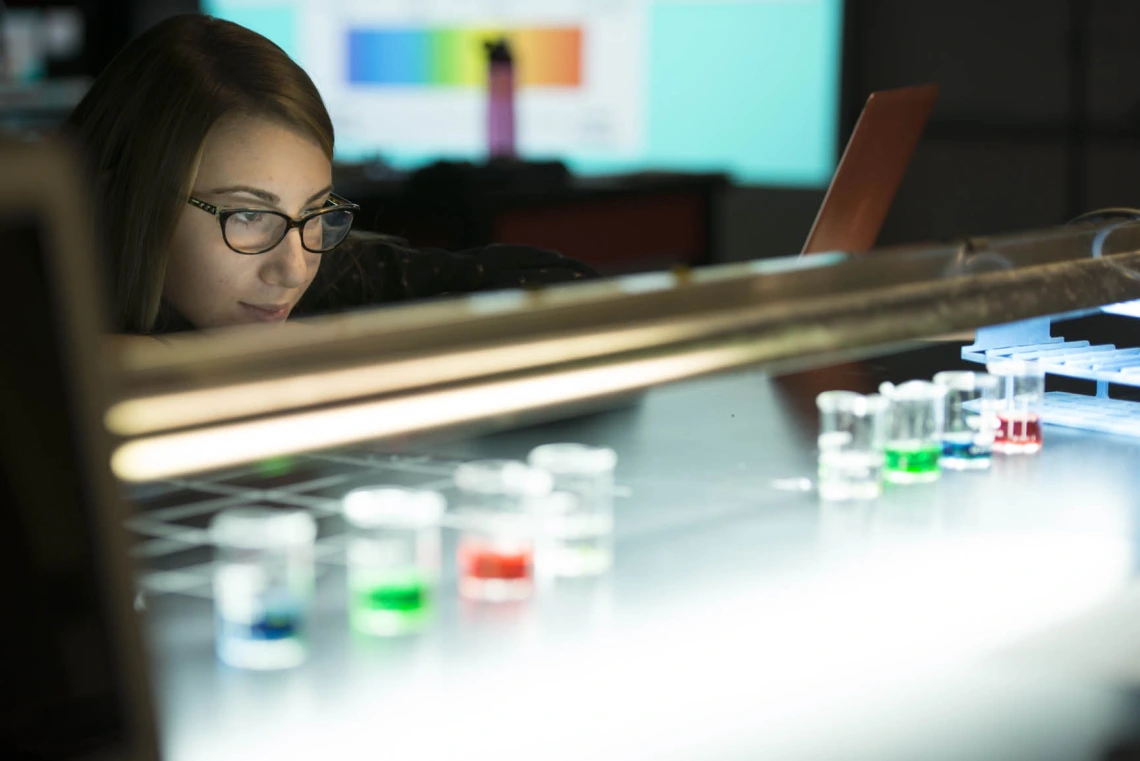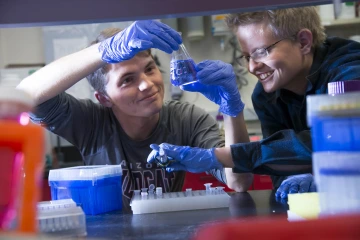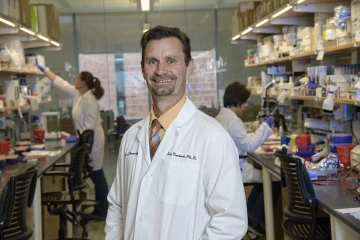New Degree to Prepare Students for Health Care Careers
A new Bachelor of Science in Medicine expands opportunities for students to pursue jobs in health care, where demand for trained professionals is rising.

University of Arizona Health Sciences students will be able to take advantage of expanding employment opportunities and meet the increasing demand for trained health care professionals through a new Bachelor of Science in Medicine degree program.
As an increasingly aging population places greater demands on health care systems and services, the need for well-trained health care professionals is rapidly rising. Health care occupations are among the fastest-growing segments of the job market, according to the U.S. Bureau of Labor Statistics, with projections of job growth exceeding 30% over the next 10 to 20 years.
Moreover, from 2010 to 2026, the amount spent on health care is projected to double, surpassing $5.7 trillion. Expenditures, which include payments for all health care costs including pharmaceuticals as well as equipment and technology, will rise for many reasons, but the growing demand for the services of health care workers is one of the primary drivers.

Students will gain human medical science knowledge and clinical reasoning skills in four areas of emphasis: medical technology; basic medical sciences; medicine and society; and integrative and practice-focused medicine.
At the University of Arizona Health Sciences, students are being prepared to take advantage of expanding employment opportunities and meet the increasing demand for trained health care professionals in a new Bachelor of Science in Medicine degree program offered through the UArizona College of Medicine – Tucson.
“It's really about expanding the options students have to pursue a degree in health-related professions, including medicine,” said Kevin Moynahan, MD, FACP, professor of medicine and vice dean of education at the College of Medicine – Tucson. “We look at this as a new opportunity for students to get involved in the health profession at an earlier stage and learn firsthand about some of the options while they're an undergraduate.”
The four-year undergraduate degree program is designed and delivered as a collaboration between clinicians, basic scientists and humanists, with a focus on clinical reasoning and case-based learning. Students will gain human medical science knowledge and clinical reasoning skills in four areas of emphasis: medical technology; basic medical sciences; medicine and society; and integrative and practice-focused medicine.
Graduates will be well prepared to enter careers directly in health care support positions or pursue alternative health care-related careers including medical marketing, medical technology, medical law, biomedical engineering, medical business and medical administration. The degree program also is another avenue students can take to enter advanced degree programs such as medicine, nursing, physical or occupational therapy, pharmacy and physician assistant.

Todd Vanderah, PhD, says the new degree with give undergraduate students the opportunity to learn about and explore a multitude of careers.
The multi-disciplinary degree program involves collaboration with UArizona programs in engineering, life sciences, applied sciences and technology, social and behavioral sciences, humanities, nutritional sciences, nursing, pharmacy and public health. Faculty involved in design and oversight of the program are clinicians and basic scientists who contribute significantly to professional programs at UArizona Health Sciences, especially medicine. This faculty expertise ensures that the program is and will remain carefully tailored to meet the needs of students seeking entry into professional health care programs or careers.
“This new degree will provide students an education not only from practicing physicians about medicine, but also from people who work in the medical field doing other things besides practicing medicine,” said Todd Vanderah, PhD, head of the Department of Pharmacology in the College of Medicine – Tucson. “One of the biggest benefits this degree has to offer is that it will allow students to have a better idea of what they may want to do in the medical field.”
Traditional science coursework – advanced anatomical, biochemical, neurological and physiological sciences, disease pathology, mechanisms of treatment and integrative therapies – will be combined with applied topics, such as what it means to be a health care provider, clinical case analysis, health care delivery to improve quality care, and hands-on experience through simulation and clinical experiences.

Kevin Moynahan, MD, FACP, says the new bachelor’s in medicine will allow students to immerse themselves in the health care field earlier in their educational journeys.
In one of the new courses being developed, students will examine 10 different clinical cases through the lens of 10 different health care professionals, such as a doctor, nurse, pharmacist, social worker or occupational therapist. This and other courses are designed to expose students to a wide range of health care occupations.
“Each session will have a specialist from those different fields to talk and lead that group, and the students will approach each case from a different discipline,” Dr. Vanderah said. “This degree program will give students an idea of what the practice of medicine is while also offering many other avenues in the health care field.”
Additionally, the Bachelor of Science in Medicine program offers electives for in-depth study in areas including biomedical engineering, bioinformatics, emergency medicine, aging in medicine, medical ethics, integrative medicine, history of medicine, and climate change as a factor in medical care.
“We are trying to attract students from a wide diversity of backgrounds,” said Dr. Moynahan. “These days, we find that students are hungry to understand different kinds of educational experiences they can enroll in to: one, learn about health professions and medicine; two, assess at an earlier stage if this is the right career for them; and three, potentially be prepared for some of the concepts that they're going to get in medical school, above and beyond the typical prerequisites.
“I'm really excited that this could be really big and grow rapidly,” Dr. Moynahan added, “because there just aren't a lot of these kinds of degrees that are mainstream and none that are attached to a medical school.”
The Bachelor of Science in Medicine degree is available as a major beginning in fall 2021.
Our Experts
Contact
Stacy Pigott
520-621-7239
spigott@arizona.edu

